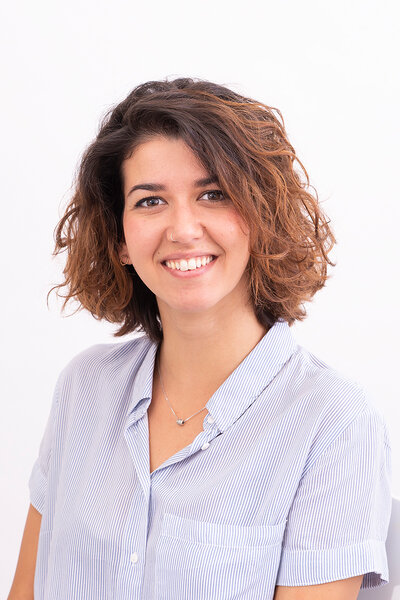Silvia Neri

I am Silvia Neri, 27 years old. I graduated in Pharmaceutical Biotechnology at the University of Perugia, Italy. I am currently a PhD student at the department of Molecular Cellular Hemostasis, Red Cell Laboratory in Sanquin Research centre, Amsterdam.
How to get to know this grant
After finishing my master's degree in 2019 I was not sure if to get into the companies reality or Academia. I have been looking around for few months and I understood that I would have like to try something that could have gave me both aspects. I found online my current position at Sanquin Research Center where I currently have the chance to work in Academia, but at the same time Marie-Curie program offers the possibility to exchange between institutes and companies which are part of the same consortium. This hybrid program, the project and the possibility to travel within the Europe meeting new fellows caught my attention and through AcademicTransfer website I could apply and get successfully this position.
Reason for joining
EVIDENCE is not only about interdisciplinary research and science. It is a network that gives the opportunity to know multiple realities and people. It is a dynamic exchange of knowledge, ideas, experiences and cultures.
Expectations
My research project aim to study the interactions that result in RBCs captured in the spleen, either between RBCs and macrophages or RBCs and the extracellular matrix, which will be defined under flow conditions. This will lead to novel insights on the mechanisms that underlie RBC clearance during normal RBC turnover and in different pathological conditions such as sickle cell disease and malaria. In addition, by defining the interactions that occur in the spleen and which form the basis of RBC capturing in this organ, I will be able to improve lab-on-a-chip based diagnostics to predict clearance of RBC in the spleen.
In order to achieve these goals I will gain technical expertise and knowledge in RBC and macrophage research, proteomics, mass spectrometry, advanced microscopy, flow cytometry, cell culture, primary blood cells isolation, phagocytosis assays, mRNA, RNA and DNA analysis, RT qPCR, western blot, flow assay and data analysis.
Updates
I am the ESR number 3. I have been working at Sanquin Research Center for one year and half by now. The project I applied for regards how RBCs are cleared in the spleen when they get aged, damaged because of storage for transfusion or during pathologic conditions such sickle cell disease or anemia of inflammation. During this first year and half I already had the chance to look at different aspects of the RBCs clearance, which gave me a broader overview and knowledge about this topic. I am investigating how RBCs are getting trapped in the spleen looking at the molecular expression of certain adhesion molecules, starting from the culture and differentiation of the erythropoietic stem cells. I have been studying how RBCs undergo changes in the spleen which cause their hemolysis and removal by phagocytes. I have been learning different techniques and gained expertise on flow cytometry, imagestream, microscopy and cell culture. Sanquin offers a mass spectrometry facility which I can take advantage of in order to study the phosphoproteomics of aged or damaged RBCs, another aspect of my project. Moreover, being a blood bank and associated with the hospital Sanquin gave me the chance to work with patient samples as well.
This project is a challenge, but the real challenge of being part of a European consortium is that I can exchange all my knowledge with other ESRs. We are spread all over Europe, working either in Academia or companies. At Sanquin I had the chance to share my experience with Giulia, ESR4. We started together our PhD program and we built a nice network and friendship since the beginning. I also had the chance to meet the ESRs that were part of the previous consortium and from them I could get nice advice on how to approach this experience. Although the pandemic didn't allow me to meet in person all the other ESRs, I have been in good contact with them. We have monthly meeting in order to update each other about our projects but also experiences, since we come from different environments. The program include secondments that have to be done by the end of the PhD contract. I couldn't make the secondment until now because of COVID-19 rules but I will finally have the chance to spend two months at IBEC institute in Barcelona during the summer 2022. Knowing that we have the possibility to make these exchanges within the consortium is really exciting and brings me high motivation to achieve the goals of my project. I am really glad I decided to join EVIDENCE and satisfied so far. I think this is a good opportunity to grow in term of carrier and personal development.
